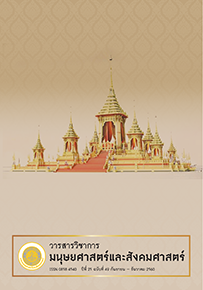A Re-Criticism of The Lottery
Main Article Content
Abstract
The Lottery by Shirley Jackson is a telling work that always attracts any reader’s rapt attention and yet ignites her prompt curiosity. Many attempts have been made to explore the underlying meanings and construct new ones in and out of the story. This study, too, aimed to offer a novel insight into this classic American short story with emphasis on close investigation of the story’s intrinsic elements by the New Criticism approach. The results have revealed that such elements as setting, characters, symbolism, point of view and language function in cooperative manner to establish selfishness as one of the central themes embedded in the story. To illustrate, the confined and isolated village demonstrates inwardness and self-preoccupation, the ritual of the lottery bears witness to blind faithfulness and resistance to change, and the black wooden box together with accompanying objects suggests the mystics of the ritual and the somberness of the village. Altogether, the indirect depiction of selfishness is attributable to all these negative qualities lurking in the village. The effaced narrator as well as diction employed to propel the story also helps portray such an abstract theme more vividly. At the end of the paper, New Criticism is recommended as an integral method for the instruction of English literature in Thai universities.
Downloads
Download data is not yet available.
Article Details
Section
Articles
บทความทุกบทความเป็นลิขสิทธิ์ของวารสารวิชาการมนุษยศาสตร์และสังคมศาสตร์ มหาวิทยาลัยบูรพาเท่านั้น


